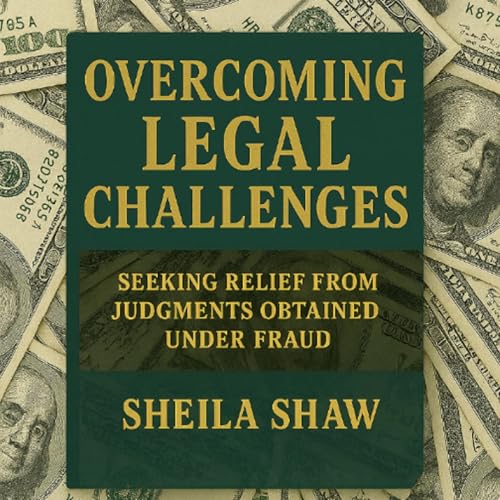
Civil law holds agencies & court actors accountable if they enable abuse,whether physical, emotional
Failed to add items
Add to basket failed.
Add to Wish List failed.
Remove from Wish List failed.
Follow podcast failed
Unfollow podcast failed
-
Narrated by:
-
By:
About this listen
Civil Liability for Enabling Cyber Domestic Violence Cyber harassment is a form of domestic violence, and officials who ignore or conceal evidence—such as digital threats or victim disclosures—may face civil lawsuits for negligence, conspiracy, or aiding and abetting. Civil law holds agencies and court actors accountable if they enable abuse, whether physical, emotional, or digital, emphasizing that technology-based harassment is central to patterns of coercion and control. podcast link: https://cdn.notegpt.io/notegpt/web3in1/podcast/podcast_ae08f680-2b6a-48b4-9834-509b5a6f6bd7-1762516412.mp3 1.
Civil Liability and Cyber Harassment in Domestic Violence
1.1. Host: You know, I keep hearing about civil lawsuits in domestic violence cases, but lately, there's been a lot more talk about cyber harassment—things like online stalking or digital threats. How does the law actually treat those situations now? 1.2. Guest: That’s a big shift we’re seeing—cyber harassment isn’t just a side note anymore; it’s being recognized as a serious form of domestic violence. Think about it: when someone uses texts, emails, or social media to intimidate or control a partner, that’s just as damaging as physical abuse—and sometimes even harder to escape. 1.3. Host: Honestly, the idea that screenshots or digital trails can be evidence in court feels almost futuristic, but it makes total sense. Are courts actually holding people accountable if they ignore those signs, though? 1.4. Guest: More and more, yes—if court officials or agencies ignore clear digital evidence or refuse to act on police reports about online abuse, they can face civil liability. It's no longer enough to say 'Well, it's just online.' If they enable harm by turning a blind eye, they can be sued for negligence or even aiding and abetting. 1.5. Host: That actually reminds me of stories where victims say officials brushed off their complaints because the threats weren’t in person. So now, if someone in the system suppresses digital evidence, they could be part of the problem legally? 1.6. Guest: Exactly, and it’s a huge wake-up call. Courts are starting to recognize how refusing to intervene—or worse, helping to hide digital abuse—makes them complicit. It's about accountability: physical, emotional, or digital, all forms count as domestic violence, and ignoring any of them can have real legal consequences.



